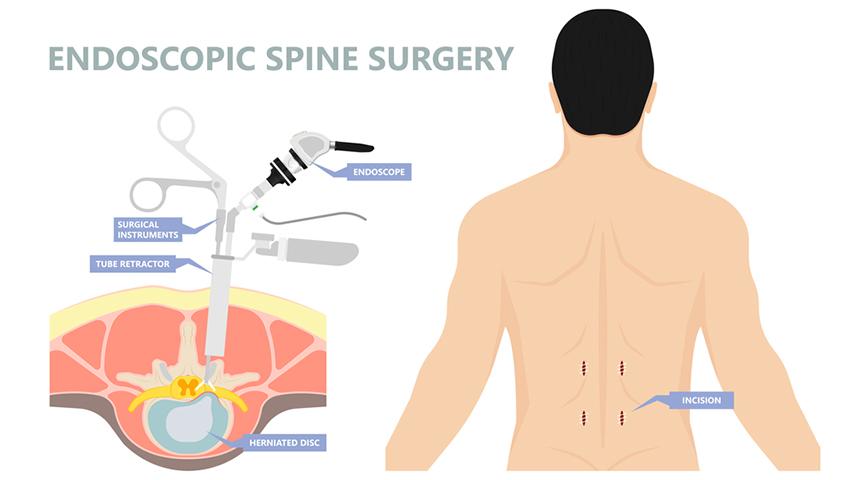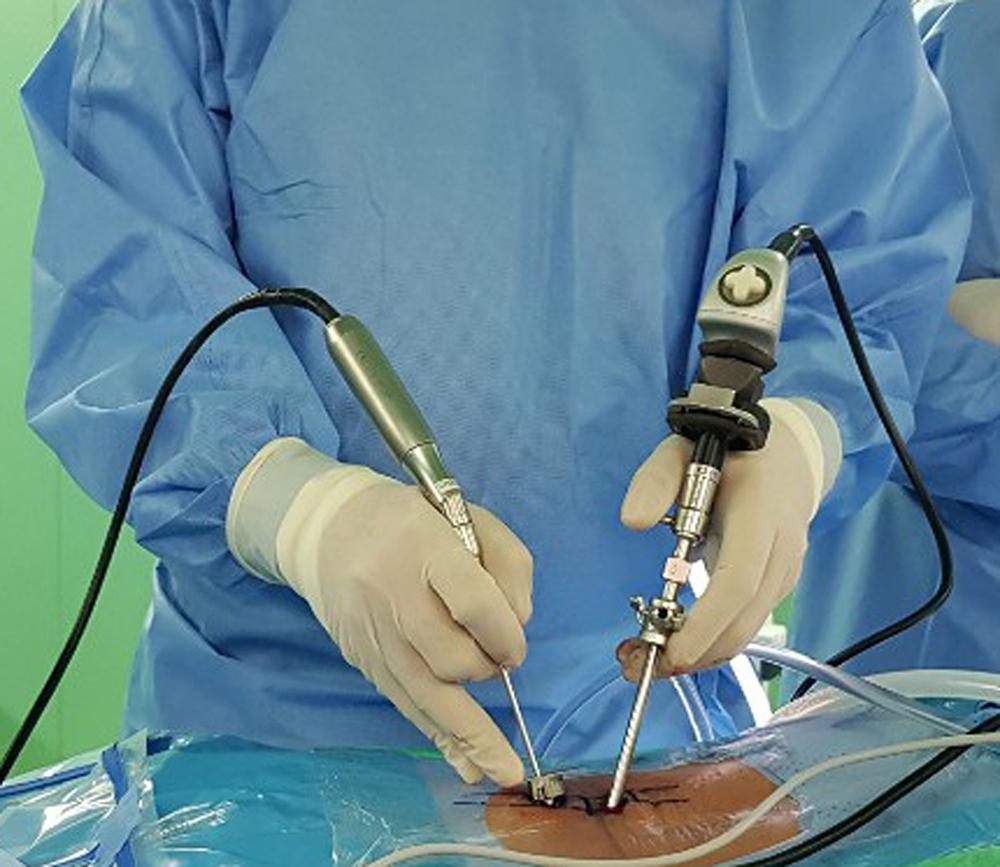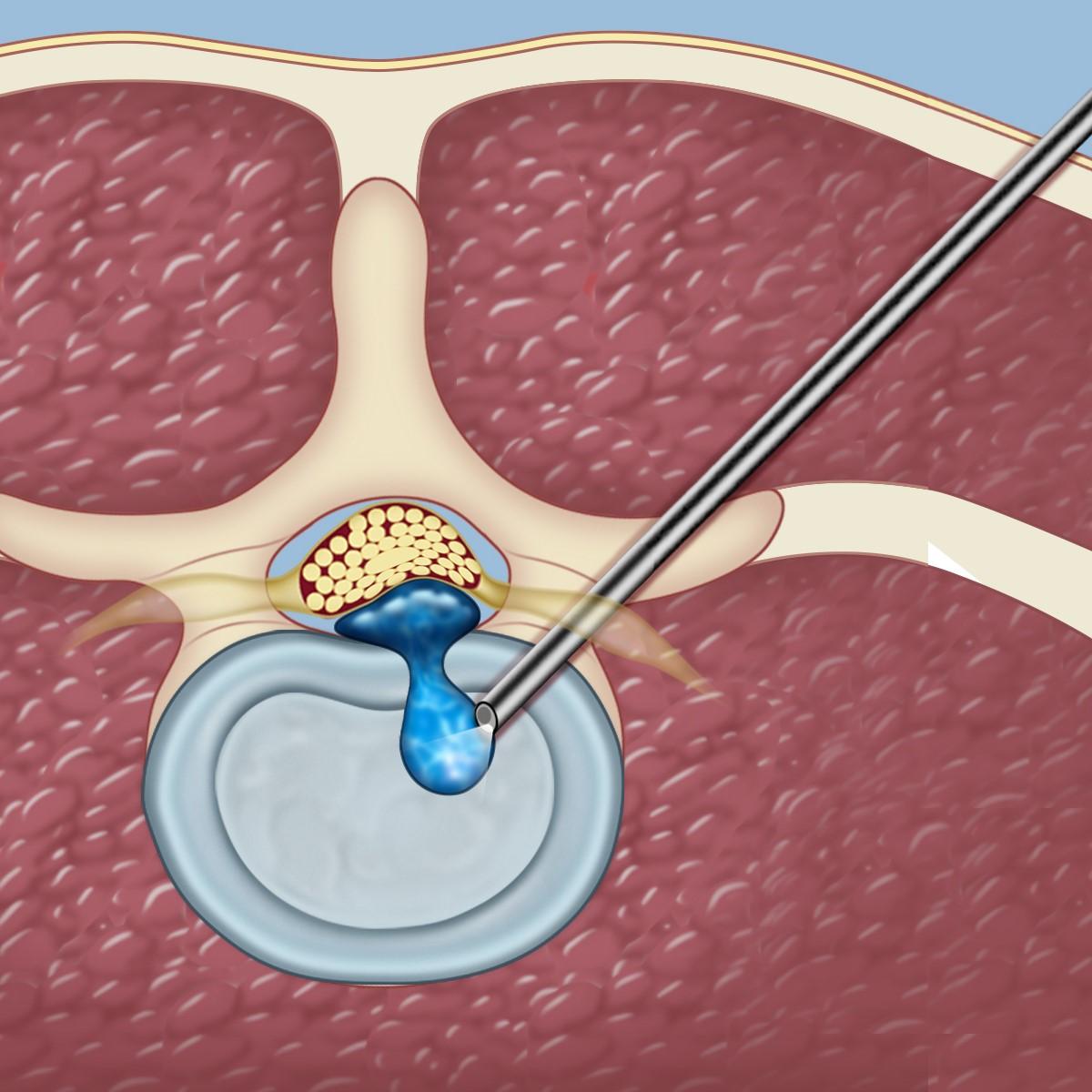Spinal Endoscopic Surgery: Minimally Invasive Treatment for Spinal Disorders
Understanding the Benefits, Applications, and Potential Risks
Introduction:
Spinal endoscopic surgery is an innovative and minimally invasive treatment approach used to diagnose and treat a wide range of spinal disorders. This procedure involves the use of advanced imaging technology and specialized tools to access and treat spinal conditions through small incisions. This article aims to provide an overview of spinal endoscopic surgery, its benefits, applications, and potential risks.
 Benefits of Spinal Endoscopic Surgery:
Benefits of Spinal Endoscopic Surgery:
 Applications of Spinal Endoscopic Surgery:
Applications of Spinal Endoscopic Surgery:
Herniated Discs: Spinal endoscopic surgery is commonly used to treat herniated discs, a condition where the soft cushions between the spinal vertebrae protrude and press on nearby nerves. The procedure involves removing or repairing the herniated disc, relieving pressure on the nerves and alleviating associated symptoms like pain, numbness, or weakness.
 Spinal Stenosis: This surgical approach can also be employed to address spinal stenosis, a condition characterized by the narrowing of the spinal canal. By removing excess tissue or bone that compresses the spinal cord or nerves, spinal endoscopic surgery can help relieve pain and restore function in affected individuals.
Spinal Stenosis: This surgical approach can also be employed to address spinal stenosis, a condition characterized by the narrowing of the spinal canal. By removing excess tissue or bone that compresses the spinal cord or nerves, spinal endoscopic surgery can help relieve pain and restore function in affected individuals.
Spinal Tumors: In selected cases, spinal endoscopic surgery may be utilized for the diagnosis and removal of spinal tumors. Surgeons can guide the endoscope to the precise location of the tumor, enabling visualization and accurate tissue sampling. This minimally invasive technique can reduce the need for extensive open surgery, leading to quicker recovery and improved patient outcomes.
Potential Risks and Considerations:
While spinal endoscopic surgery offers numerous advantages, it is important to be aware of potential risks and considerations associated with the procedure. These may include infection, bleeding, nerve damage, or incomplete resolution of symptoms. It is crucial for patients to have a thorough consultation with their healthcare provider to understand the potential risks and benefits specific to their condition.
Conclusion:
Spinal endoscopic surgery is a minimally invasive approach that provides numerous benefits for the diagnosis and treatment of various spinal disorders. With its precise and targeted interventions, this technique offers patients reduced tissue damage, faster recovery, and improved outcomes. However, it is essential for patients to consult with their healthcare provider to determine if spinal endoscopic surgery is the appropriate treatment option for their specific condition, considering the potential risks and benefits involved.
What is spinal endoscopic surgery?
Spinal endoscopic surgery is a minimally invasive procedure that uses advanced imaging and specialized tools to diagnose and treat spinal disorders through small incisions.
What are the benefits of spinal endoscopic surgery?
The benefits of spinal endoscopic surgery include reduced tissue damage, faster recovery times, precise treatment, and accurate diagnosis of spinal conditions.
What conditions can be treated with spinal endoscopic surgery?
Spinal endoscopic surgery can treat herniated discs, spinal stenosis, and in select cases, assist with the diagnosis and removal of spinal tumors.
What are the potential risks of spinal endoscopic surgery?
Potential risks include infection, bleeding, nerve damage, and incomplete resolution of symptoms, which should be discussed with a healthcare provider.
Is spinal endoscopic surgery suitable for all patients?
The appropriateness of spinal endoscopic surgery varies depending on the individual's specific condition, and a consultation with a healthcare provider is necessary to determine the best treatment option.
What is the success results of Spinal Endoscopic Surgery?
The success rates of spinal endoscopic surgery vary depending on the specific condition being treated, but overall, it has shown promising results with high patient satisfaction and improved outcomes compared to traditional open surgeries. However, individual results may vary, and it is essential to consult with a healthcare provider to determine the expected success rate for a particular case.
We are associated with experienced and highly skilled medical professionals. We use the latest medical technology available in the world and we provide medical services in collaboration with JCI & NABH Certified hospitals only. Our services include various types of treatment and organ restructuring and transplant.
